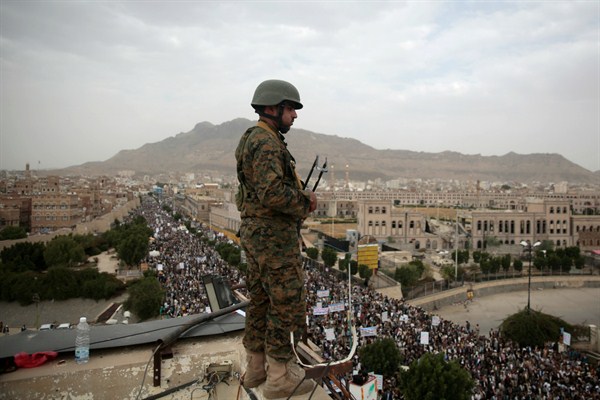With the warring parties in Yemen locked in a stalemate on the ground, the battle for the Arab world’s poorest country is moving to a new front: the economy.
The government-in-exile of President Abd Rabbu Mansour Hadi is planning to shut down the Central Bank of Yemen in the capital, Sanaa—a city that Houthi rebels have controlled for two years—and establish a new bank in the southern port city of Aden. Hadi hopes to cut off financing to the alliance of Houthi rebels and military units loyal to former President Ali Abdullah Saleh, which control Yemen’s northwestern highlands and western coast. He also hopes that moving the bank will convince Saudi Arabia, its main backer in the war, to inject much-needed foreign currency into Yemen’s beleaguered banking system. But there are fears that Hadi could use the new bank to wage economic war on Houthi-controlled areas, home to the bulk of Yemen’s population.
Since the beginning of the war in early 2015, there has been an unwritten economic truce aimed at keeping the central bank free of political interference. Until recently it was widely believed that neither the Houthis nor Hadi had interfered in the bank’s work; both sides refrained from accusing its governor, Mohammed bin Humam, of taking sides. One of Yemen’s ablest technocrats, bin Humam runs what before the war was one of the country’s few well-managed institutions. Yemen’s economy has avoided total collapse under his leadership, but that may be about to change.

